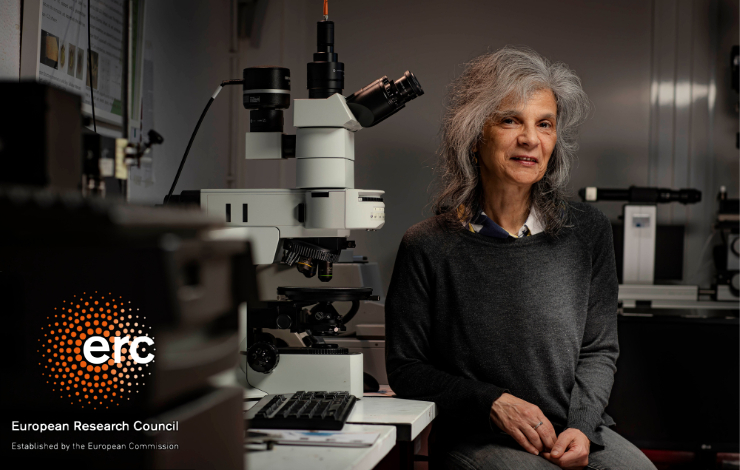05-11-2024

Photo: João Lima
Maria Helena Godinho, researcher at CENIMAT and professor at NOVA FCT's Materials Science Department, has been awarded the ERC Synergy Grant by the European Research Council, together with two other researchers from the Universities of Luxembourg and Cambridge.
The ERC Synergy Grant is awarded to a group of researchers who will work together to provide answers to specific problems. In addition to Professor Maria Helena Godinho, from NOVA FCT, Professors Jan Lagerwall, from the University of Luxembourg and Eugene Terentjev, from the University of Cambridge, have also received this grant.
The amount of funding awarded aims to support scientists from different fields in solving complex issues through a multidisciplinary approach.
The NOVA FCT researcher will receive 2,336,961 euros (out of a total of 8.5 million euros) for the research project ‘Atypical liquid crystal elastomers: from materials innovation to scalable processing and transformative applications’ (ALCEMIST), which will study Liquid Crystalline Elastomers (LCEs) of natural origin. This project brings together a multidisciplinary team - whose main objective is to produce sustainable LCEs from cellulose and chitin, materials that come from renewable and sustainable sources.
Liquid Crystalline Elastomers, a class of advanced materials, have the ability to respond to external stimuli such as heat, light, humidity or tension, changing characteristics such as colour, shape, rigidity and damping properties. Currently, existing LCEs are generally produced from petroleum derivatives, which limits their potential for sustainability and scalability in ecological terms.
The work of Portuguese researcher Maria Helena Godinho, from NOVA FCT, centres on the modification of natural polysaccharides, such as cellulose, to create advanced materials. The researcher seeks to adapt these biopolymers to become LCEs that are safe for the human body and biodegradable. Consequently, this research will enable the creation of innovative and environmentally friendly materials, with lower production costs compared to petroleum-derived alternatives.
‘Our proposal is to create a platform of sustainable materials using natural substances such as cellulose from plants and chitin from waste such as shrimp shells, for example. By modifying these substances, we have been able to develop Liquid Crystalline Elastomers that offer resistance and safety, while being biodegradable and low-cost,’ explains CENIMAT | NOVA FCT researcher Maria Helena Godinho. ‘This work will allow LCEs to have a significant impact on the development of new devices and applications, from energy-efficient motors, to reversible adhesives, to advanced surgical tools and adaptive buildings.’
The ALCEMIST project also aims for scalable production of these materials for industrial applications. Innovations include motors that use waste heat from industry, kinetic buildings that adapt to climate change and sutures that change colour in response to tension, ideal for robotic surgery. In addition, the research includes the creation of reversible adhesives that make it easier to recycle products that are difficult to dismantle.
European Research Council (ERC) grants support top researchers who are selected for their innovative ideas for future research, as well as for the exceptional quality of their previous work. These grants exclusively fund scientific quality and have a success rate of around 10 per cent of applications submitted. NOVA FCT has so far had 17 ERC grants, to which the ‘ERC Synergy Grant’ has now been added, proving the excellence of the research carried out at the institution.
More information: alcemist.eu